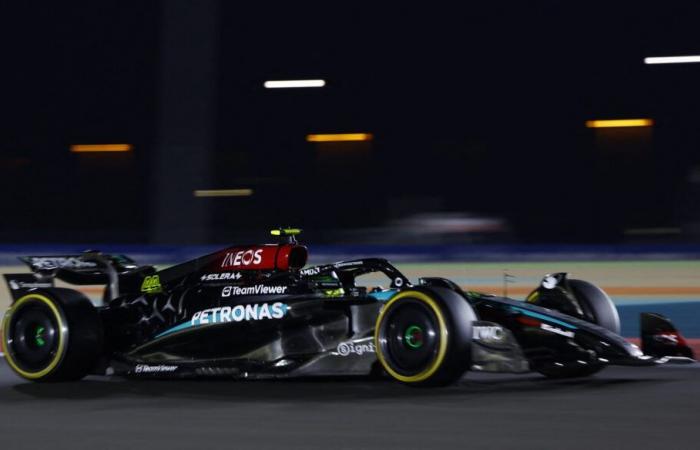
Mercedes appears to be preparing for a strong return to Formula 1 with its 2026 power unit, sparking comparisons to the revolutionary package that propelled the team's dominance from 2014. With the stakes high, speculation is growing as to to the possibility that a renewed position at the front of the grid could entice reigning champion Max Verstappen to join the Silver Arrows.
Mercedes Ready for a New Power Unit Revolution
The introduction of 50% electrification to F1's power unit regulations for 2026 marks one of the sport's most significant technical overhauls. For Mercedes, the change evokes memories of the transformative 2014 season when it took advantage of new V6-turbo hybrid engines to begin an eight-year run of constructors' championships.
Respected F1 analyst Ted Kravitz has suggested that internal confidence within Mercedes' Brixworth facility reflects the optimism that preceded their historic dominance in the hybrid era. “They feel the same way about the 2026 power unit as they did about the 2014 power unit,” Kravitz shared on the podcast Sky F1. “They're feeling the same types of gains they had when they swept it all under a new power unit rule in 2014.”
Building towards 2026: Strategic changes and losses
While Mercedes' focus remains on preparing for the readjustment of regulations, recent seasons have been difficult. The team has struggled to adapt to the ground-effect cars introduced in 2022, managing to achieve just five wins in three years. However, Kravitz speculates that Mercedes might already be prioritizing 2026 development over immediate success.
Notably, Mercedes has seen key personnel changes, including the departure of Loïc Serra to Ferrari. Still, the organization remains optimistic about its long-term strategy and sees the rule changes as a new opportunity to reset the pecking order.
A silver star? Mercedes' attempt at Verstappen
Max Verstappen, the four-time F1 champion, has been a long-time target for Mercedes. Team principal Toto Wolff previously identified Verstappen as the ideal successor to Lewis Hamilton, who left for Ferrari in 2025. Although discussions with Verstappen's camp did not materialize into a transfer, Mercedes would ready to rekindle his interest if the opportunity presented itself.
Red Bull team principal Christian Horner has acknowledged the existence of performance-related exit clauses in Verstappen's contract, which runs until 2028. The Dutch driver's commitment to Red Bull could be canceled put to the test by the team's in-house powertrain project with Ford, a move facing doubts about its competitiveness in 2026.
Mercedes CEO Ola Källenius has hinted he could woo Verstappen, saying: “The best driver wants to have the best car. And that's our job, to put together the best package. The cards will be redistributed in 2026. New rules, new order—who knows? But I think Max would look great in silver, don't you? »
Challenges ahead for Red Bull
While Red Bull has dominated recent seasons, its prospects for 2026 remain uncertain. The team's collaboration with Ford for its first in-house power unit introduces a significant variable, raising questions about its ability to maintain its lead against experienced engine makers like Mercedes.
Red Bull's struggles in 2024 with temperature-dependent performance further highlight areas for improvement as the team prepares for upcoming rule changes. Verstappen himself stressed the importance of tackling these weaknesses, saying: “If we can correct some weaknesses this winter, we will be back on top. »
An order redistributed in 2026?
The 2026 regulations promise to level the playing field, giving teams like Mercedes a chance to regain their dominance. With a promising power unit in the works and the chance to secure Verstappen as a star driver, Mercedes could find themselves at the top again in F1's next chapter.
However, as the sport prepares for its most significant readjustment in years, competition will be fierce, with Red Bull, Ferrari and others vying for supremacy. It remains to be seen whether Mercedes can recapture the magic of 2014 – but one thing is certain: the 2026 season is already shaping up to be a watershed moment in Formula 1 history.





